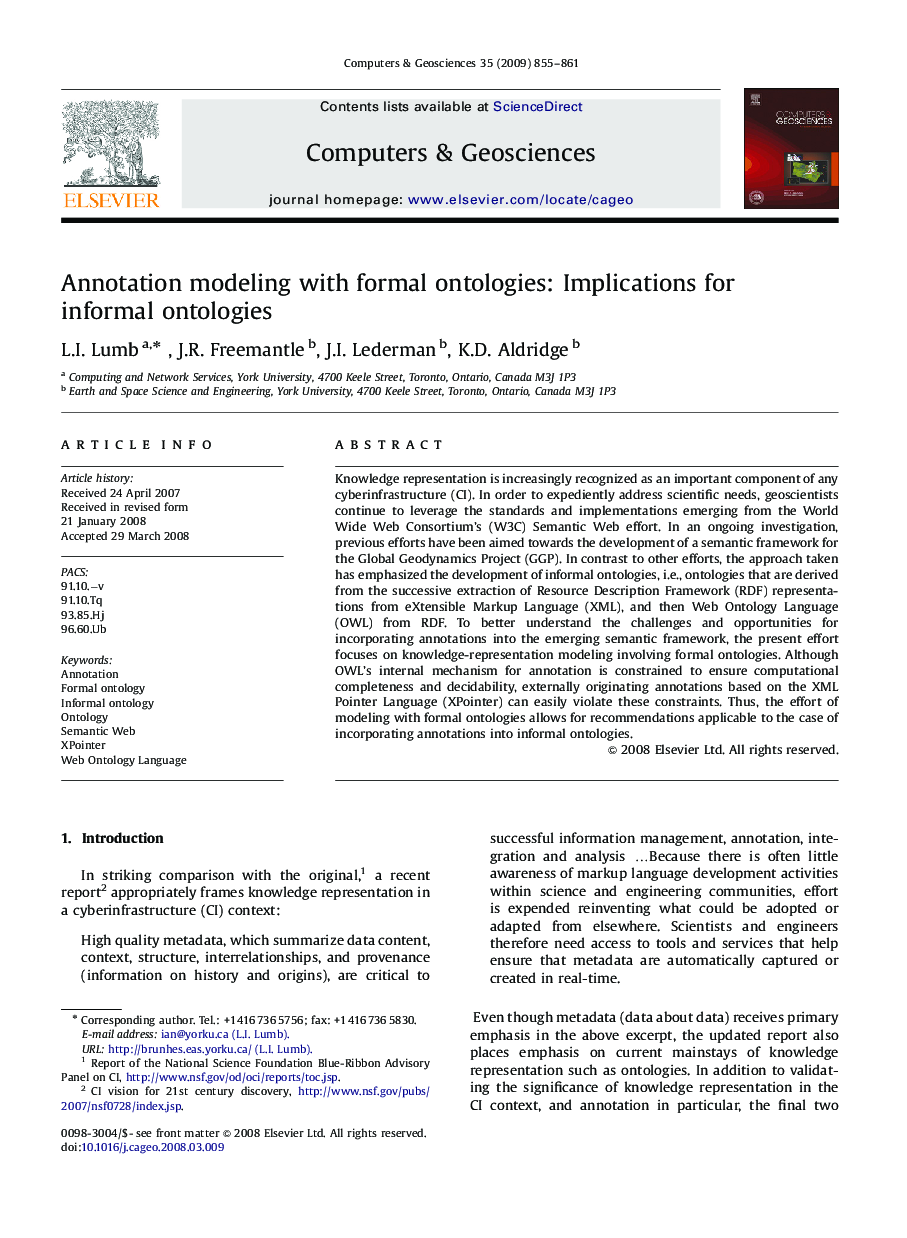| Article ID | Journal | Published Year | Pages | File Type |
|---|---|---|---|---|
| 508310 | Computers & Geosciences | 2009 | 7 Pages |
Knowledge representation is increasingly recognized as an important component of any cyberinfrastructure (CI). In order to expediently address scientific needs, geoscientists continue to leverage the standards and implementations emerging from the World Wide Web Consortium's (W3C) Semantic Web effort. In an ongoing investigation, previous efforts have been aimed towards the development of a semantic framework for the Global Geodynamics Project (GGP). In contrast to other efforts, the approach taken has emphasized the development of informal ontologies, i.e., ontologies that are derived from the successive extraction of Resource Description Framework (RDF) representations from eXtensible Markup Language (XML), and then Web Ontology Language (OWL) from RDF. To better understand the challenges and opportunities for incorporating annotations into the emerging semantic framework, the present effort focuses on knowledge-representation modeling involving formal ontologies. Although OWL's internal mechanism for annotation is constrained to ensure computational completeness and decidability, externally originating annotations based on the XML Pointer Language (XPointer) can easily violate these constraints. Thus, the effort of modeling with formal ontologies allows for recommendations applicable to the case of incorporating annotations into informal ontologies.
